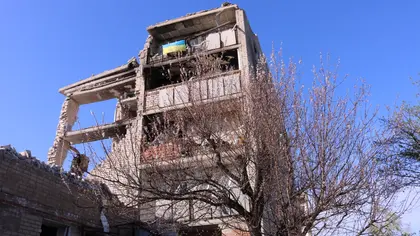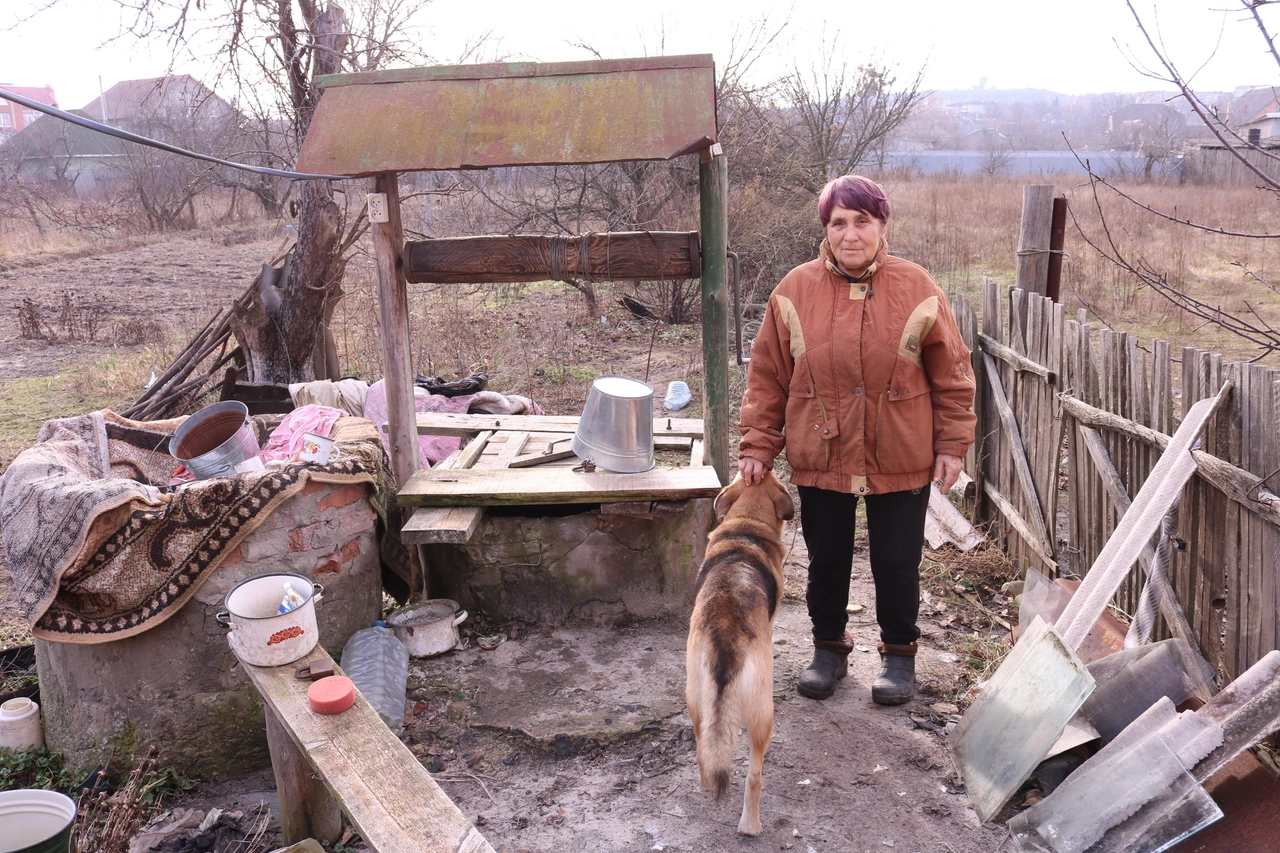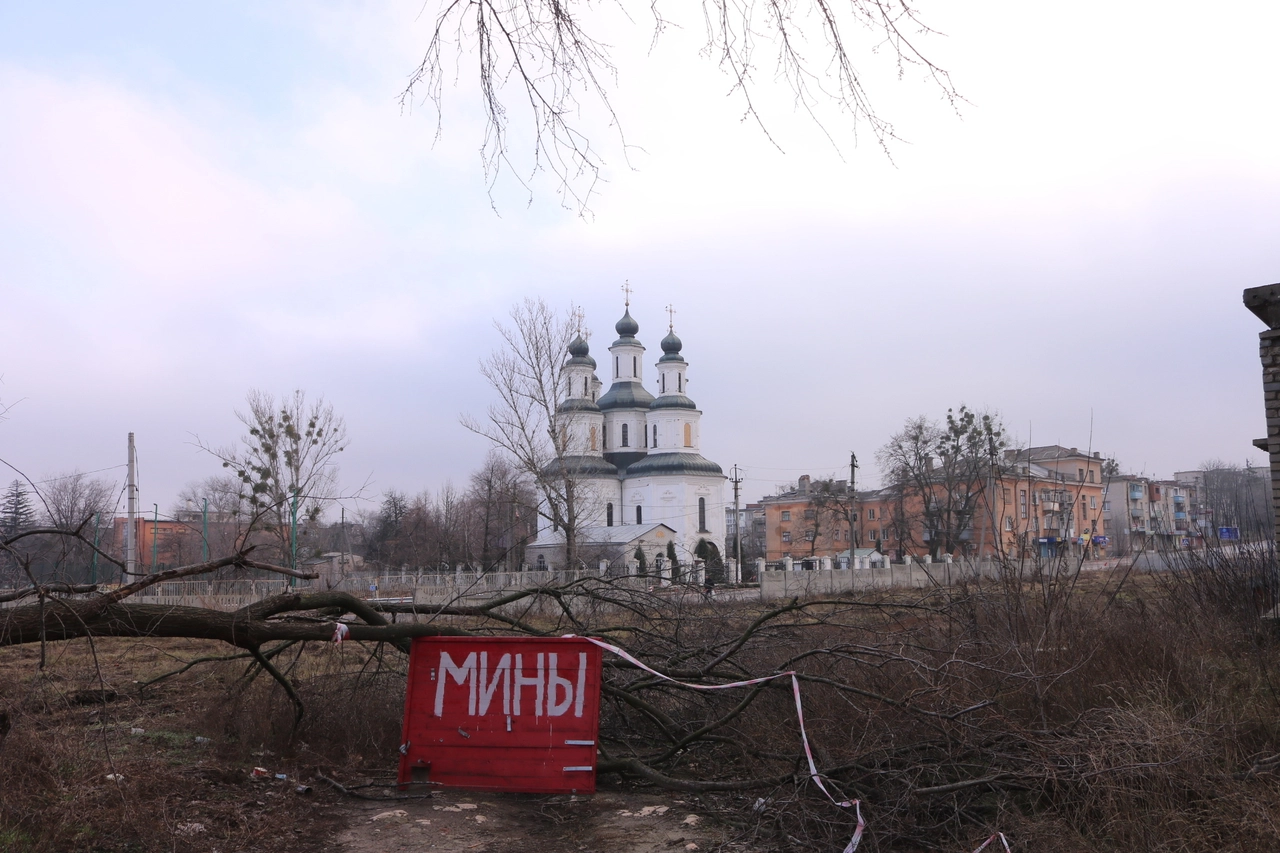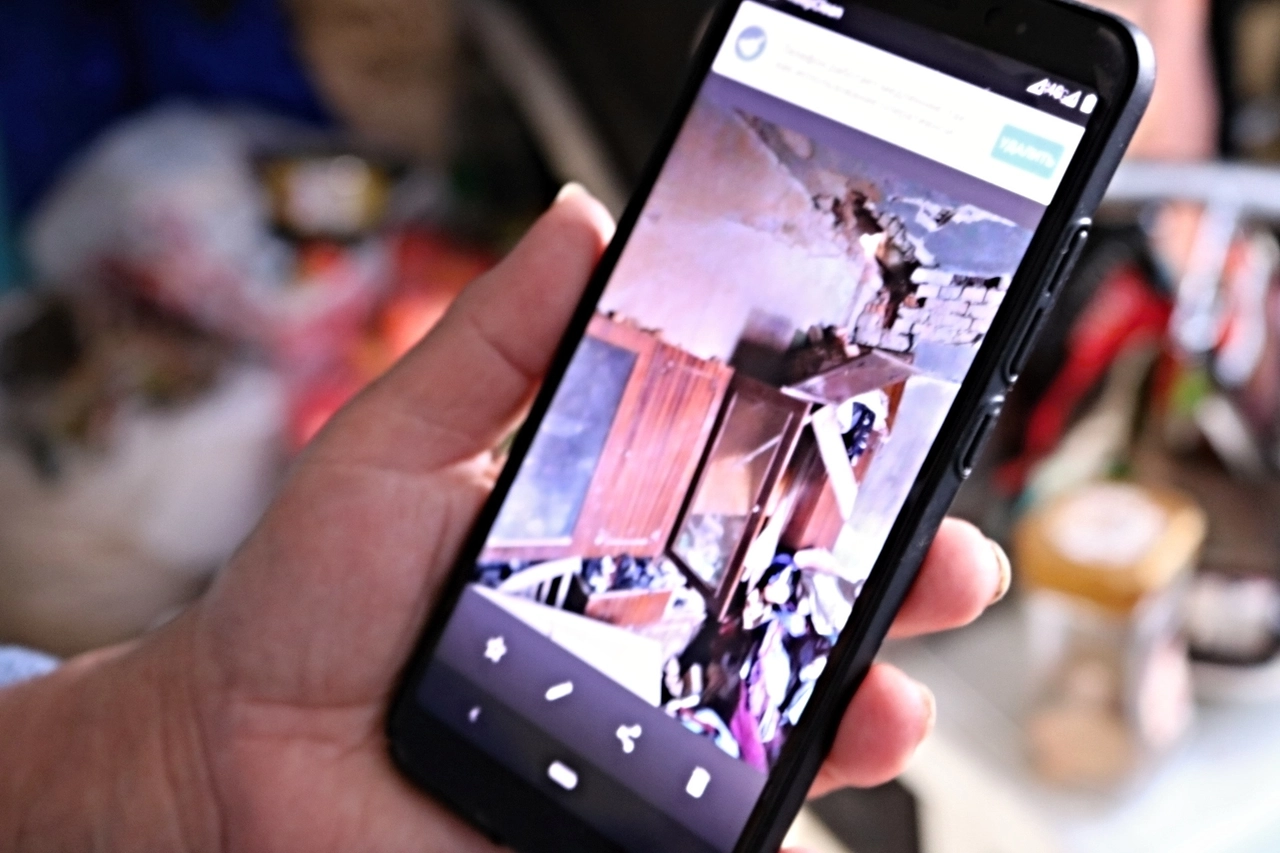With Russia’s full-scale invasion of Ukraine on Feb. 24, 2022, the citizens of Izium faced the horrific challenge to Ukraine’s independence with an incandescent desire for their lost freedom. They like those in the other cities that were captured, bombarded, and shelled have shown that the Ukrainian spirit is invincible won’t be undermined. Each of those who suffered under occupation have a unique story to tell of the struggles they faced and how they survived.
On Sept. 10 this year Izium celebrated the first anniversary of its liberation as a holiday of spirit and joy and the hopes that other occupied territories would soon follow. Its people believe in the Armed Forces of Ukraine and know that one day Mariupol, which is still held by Moscow’s forces, and its people will be returned into the embrace of Ukraine.
JOIN US ON TELEGRAM
Follow our coverage of the war on the @Kyivpost_official.
The reconstruction of Izium is underway but its story of pain and sorrow is still evident in the sites of mass graves, the shrapnel that marks the walls of every house, and the still shattered windows through which kids once greeted each new day with hope. Unlike the windows, the spirit and hopes of Izium citizens have never been shattered. The well of their longing to be free is deep enough to be considered inexhaustible.
To leave in fear or live in terror
“When Izium became occupied, the invaders took everything from us, everything. Our lives. And everything we had,” Liubov Volodymyrivna, a survivor of the occupation shared with me. She had to stay in the city to take care of her son Anatoliy, “Tolia”, who has special needs.

ISW Russian Offensive Campaign Assessment, December, 20, 2024
She, like many of those who lived through the occupation are often asked about the reasons that made them stay, reasons which differ for each person. This is the story of Liubov and Tolia who couldn’t leave, and lived through the horrors that followed. Liuba’s house was all but destroyed but she had a water-well and was able to share her water with many of her neighbors. Most of all she says that it was the well of hope in her heart that kept her going every day.
The massive attacks on Izium began in early March 2022 and Liuba watched as people got on or placed their children on buses to evacuate away from the frontline. Luibov had no chance to follow their example, as she expains:
“My son and I are not one of those who could just leave. I need certain things and supplies to keep him comfortable and take care of his health condition. My son Tolia can’t talk or show anything in case he has to deal with strangers unaware of his needs.”
Liuba’s son has special needs, and requires constant support and help in his daily life. As a baby he was lively and extremely clever - at the age of 4 he showed that he had a great memory and knew the alphabet. Tolia has a condition called congenital (primary) hydrocephalus where the liquid around the brain ruins the cells and tissues. At an early age, he contracted meningitis which led to epilepsy and by the age of 8 he became paralyzed and stopped talking.
Liuba and her husband did all they could and more to help their son and try to stop the progress of the disease. They consulted specialists and did everything the doctors told them to but the disease continued to take its toll - it was too late successfully to treat.
Liuba says she learnt about the planned evacuations from Izium by accident, she wasn’t informed officially in advance. If she had time to think about it and prepare, it might have been an option, but it really wasn’t. Her son has so many needs that couldn’t be met. Most of those who left took very little, some only had a tiny purse holding essential documents. She would have had to take so many supplies to take care of Tolia on the journey. She told me that people often judge her harshly for staying which hurts her deeply:
“Those who have never been through something like this will never understand what it feels like. There are people who fled immediately having heard the news about the war, and now tell exciting but doubtful stories regarding what had been going on. They show their fake patriotism. If they were to experience being under all that shelling, they would be able to understand. But all they can do is to call us separatists or collaborators. As well as the need to take lots of supplies for my son with me, I practically had no place to go and stay with him. There was nothing left for me, but stay and hope our Defenders would save us,” she exclaims.
Shielded by hope and sticking together: surviving the attack on Izium
At 5:45 on March, 9 a Russian missile came through the living room window of her house, damaging furniture, passed through to the kitchen ruining the stove and exited through the window throwing pots and other utensils outside. Liuba says, it is a blessing that no one was injured:
“My neighbor said that I have a guardian angel. That morning I got up early and was just sitting on the couch. I didn't know too many prayers But I had a Bible I purchased on the day of Epiphany. Just as I got up to take it from the shelf to read a prayer, there was the blast into the corner of the room which hit the sofa I was on seconds before.”
Liuba says what happened later was like she was part of a scary movie. The TV flew over her head and out of the window with the kitchenware, bricks were crashing and falling. But her only thought was how to get to her son Anatoliy:
“I was crawling to my son’s bedroom hoping he was ok. Thank God his head was closer to the other side of the room, not the door where the explosion happened. And he was also far enough away, so that the shattered glass from the window didn’t reach him. I quickly got to the window to call for help. Luckily, my kind neighbors were there to help to get Tolia out of the house.”
Luiba can’t thank her neighbors, the Peresychanskis, enough. Without their help she wouldn’t have been able to get Toila out on her own as the building caught fire. Their support didn’t end there. They shared their food with her and her son and, most importantly, they were a fortress of support and hope as the storm of war surrounded them.
With her neighbors caring for Tolia and the house burning she began to throw belongings that hadn’t been hit with shrapnel out of the window and did what she could to extinguish the fire.
She managed to save at least part of her house but there was only one tiny room with a small couch fit for Liuba and her son to stay in. The building was constructed a while ago and the room had a tiny stove, which helped them to keep warm. They covered all the doors, windows, and holes in the walls with blankets to retain the heat. Eventually it got warm enough, so they didn’t have to sleep in coats, jackets and winter boots - that seemed almost a luxury. They survived in that minuscule room – with continual shelling and the cold outside – which kept reminding them of “winter brought to Ukraine by the occupiers”.
As spring moved into summer kind neighbors helped Liuba to repair her house. She became handy at restoring her home, learning by trial and error. She remembers:
“Some people find it hard to believe, but I learned to cut glass to get the window panes back. First, I received some guidance from those with experience, but then, I bought the glass cutter and got to business myself. I just tried and went for it. The hardships we face teach us to do things faster. My friends were amazed at what I did. But you see, I had no choice but do it. It wasn't easy, it would break or not fit at times. Glass was scarce, so I had to make one window pane out of two pieces put together. But still, it was a success”.
Before giving up work to care for Tolia, Liuba had worked for 38 years as an electromechanic at Izium’s central telephone station for city communication connections after studying at the Kharkiv Technical College of Communication. Learning to repair things and confront challenges had been part of her work experience but she also feels that the motivation to never give up and fix things is a natural trait of Ukrainians, something learnt at an early age:
“I had this passion for repairing things since childhood. I remember my father soldering something to repair the TV, and I was always around. Soldering was a fascinating activity for me. In no time, I taught myself to fix different things like TVs or radios on my own. And that motivated me to study it and pursue it as my career.”
To be concluded in Part 2.
Olga German is a Ukrainian storyteller, dancer, journalist and documentalist.
The views expressed in this opinion article are the author’s and not necessarily those of Kyiv Post.
You can also highlight the text and press Ctrl + Enter









